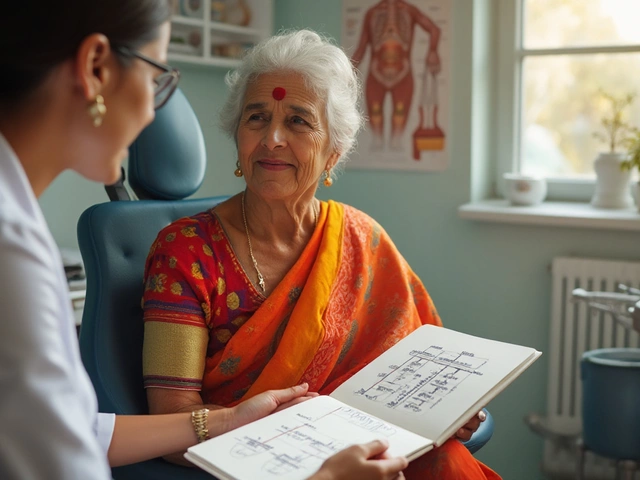Bad Candidates: Who’s Not a Good Fit for Common Medical Treatments
When dealing with bad candidates, people who don’t meet the health or safety requirements for a particular therapy. Also known as unsuitable patients, they often face higher risks, limited benefits, or outright contraindications. Understanding why someone falls into this group helps avoid costly complications and guides both doctors and patients toward better choices.
Why Being a Bad Candidate Matters Across Different Therapies
Take knee replacement, a surgical solution for severe joint degeneration. It requires solid bone quality, controlled diabetes, and realistic rehab expectations. If a patient lacks adequate joint health or has uncontrolled infection, they become a bad candidate—the implant may fail, and recovery can stall. Similarly, IVF, assisted reproductive technology that creates embryos outside the body, demands hormonal balance and a functional uterus. Women with severe uterine scarring or poor ovarian reserve often see low success rates, turning them into bad candidates for standard IVF protocols.
Weight loss medication, drugs like semaglutide that target metabolic pathways, works best for people with a specific BMI range and no history of pancreatitis. When a patient has a contraindicated heart condition or is pregnant, the medication may cause more harm than benefit, marking them as a bad candidate. The same logic applies to herbal medicine, plant‑based remedies used for various ailments. Certain herbs can interact dangerously with prescription drugs or exacerbate liver disease, making them unsuitable for many patients.
These examples form a clear pattern: bad candidates are identified by health profiles that clash with the core requirements of a treatment. The relationship can be summed up in a few simple triples:
- Bad candidates – are – patients with insufficient health criteria.
- Knee replacement – requires – adequate bone strength and post‑op compliance.
- IVF – demands – hormonal stability and viable uterine environment.
- Weight loss medication – needs – proper BMI and no contraindicated conditions.
- Herbal medicine – can be – unsafe for certain chronic diseases.
Beyond the medical specifics, lifestyle factors also play a huge role. Smoking, poor nutrition, and lack of exercise often tip the balance toward being a bad candidate. For instance, a smoker facing knee replacement faces higher infection rates, while an inactive person considering weight loss drugs may not achieve the needed lifestyle changes for lasting results. Recognizing these patterns can save time and money, and steer you toward alternatives that better match your situation.
In the list below, you’ll find detailed articles that dive deeper into each of these areas—how to assess suitability for knee surgery, what IVF screening looks like, tips for safe weight‑loss drug use, and when herbal remedies might do more harm than good. Whether you’re a patient weighing options or a caregiver looking for guidance, these resources give you the facts you need to avoid becoming a bad candidate and to choose the right path forward.

Bad Candidates for Knee Replacement: What You Need to Know
Not everyone is the perfect candidate for knee replacement surgery. Understanding who might not benefit from this procedure can help people make informed decisions with their doctors. Factors like age, overall health, or lifestyle can all play a role. Identifying these can prevent complications and ensure the best treatment approach. Learn who should think twice before opting for knee surgery.
read more



